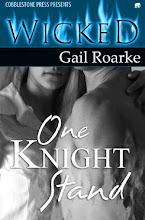I'm writing my second novel, as noted in a previous post. I'm averaging more words per day on this one than on the last one. It's a higher per-day average than I've done in anything so far. I ascribe part of it to trying harder to write, write, write every work day. But part of it is that I've gotten better at stifling my interal critic.
I set a kitchen timer for sixty minutes, start it, and begin writing. For the next hour, I write--as non-stop as humanly possible. I don't revise, I don't delete anything and start over. I just write the current scene, transcribing it as simply and explicitly as possible. I try to stay in a "flow" state, trusting my process (or my subconscious, if you will) to be creative and to produce something worthwhile. After all, I have decades of experience at reading and watching fiction. I've soaked up the rules, just the same way I soaked up the English language as a small child, learning by immersion.
Now, like a child learning to speak, practice (and correction) are necessary. But that's what writing every day, and trying to produce workable short stories and novels is: practice. Artists practice. Musicians practice. Actors practice. Athletes practice. World-class examples of each of those spheres practice more than anyone else; they don't practice to get good, then stop. They practice to stay at the top of their game even after they've reached the pinnacle of their professions.
Writing is no different. Every novel, every short story, every scene I write is practice. One of the great things about writing is that you can get paid to practice. Once you've reached minimal level of skill, enough to sell your work, you can continue to practice, and sell the results.
Ideally, I'm doing focused practice, working a specific skill or technique. Whether it's writing convincing dialogue, character voices, plotting, scene description, or some other facet of the writing, I try to focus on one skill or technique and consciously work to use/improve it. In my first novel, I focused on cliffhangers. I tried to end each hour-long writing segment, and each writing day (of several such hour-long writing intervals) on a cliffhanger of sorts. Not necessarily a classic cliffhanger--sometimes I simply stopped in mid-scene, so I could pick up again easily when I started the next writing interval. But I tried to end each scene with a real cliffhanger--a revelation, a threat, or both.
In this novel? Well, I'm not prepared to admit what I'm working on just now. Better not to reveal that until it's done. But there's practice going on.
STRANGEST THINGS WASHED UP ON BEACHES
-
It's not unusual to see all sorts of things washed up on beaches around the
world. There are the *natural* things such as seaweed/kelp and sea shells,
in...
4 days ago









No comments:
Post a Comment